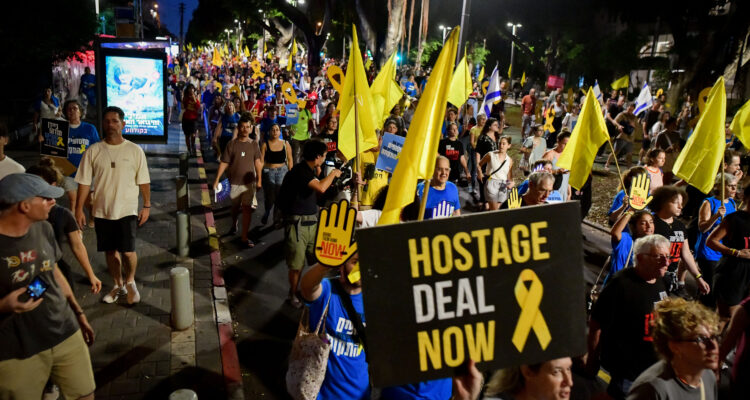Egyptian leader Abdel Fattah al-Sisi proposed an initial two-day ceasefire and hostage-for-prisoner exchange intended to lead to a more comprehensive deal.
By Vered Weiss, World Israel News
A day after Egypt proposed a 48-hour ceasefire coinciding with the release of hostages and Palestinian prisoners, Hamas has rejected the plan, according to a source quoted by e Quds Press news agency on Monday.
The source claimed, “Based on the immense sense of responsibility placed on its shoulders, Hamas always shows readiness to seriously examine proposals conveyed by the mediators.”
At the resumption of negotiations in Qatar on Sunday, Egyptian leader Abdel Fattah al-Sisi proposed an initial two-day ceasefire and hostage-for-prisoner exchange intended to lead to a more comprehensive deal.
The plan would begin with a 48-hour ceasefire, during which four hostages with foreign citizenship would be released in exchange for a number of Palestinian prisoners.
During this period, the delivery of humanitarian aid will be facilitated in Gaza.
For the duration, the IDF would remain within Gaza but refrain from operating armored vehicles.
On news that Egypt had proposed the two-day ceasefire and hostages for the prisoners release plan, a Palestinian source told Reuters on Sunday that Hamas would be unlikely to accept any deal without a full withdrawal of the IDF from Gaza and an end to the war from the outset.
The Palestinian official told Reuters, “I expect Hamas would listen to the new offers, but it remains determined that any agreement must end the war and get Israeli forces out of Gaza.”
On Monday, Netanyahu indicated he would be willing to accept the temporary ceasefire and hostage release deal.
At a Likud meeting, he said, “If there were a deal for a two-day ceasefire to release four hostages, I would take it immediately.”
Netanyahu has insisted throughout the war that “total victory” is the ultimate goal and that he would not be willing to accept a hostage deal that would compromise Israel’s objective of ridding Gaza of Hamas as a political and military power.
In September, Netanyahu expressed his firm resolve that he would not accept a hostage deal that would force the IDF to abandon the Philadelphi corridor on the border between Gaza and Egypt.
The war cabinet voted to retain the condition that Israel would control the Philadelphi corridor as part of any hostage or ceasefire agreement, with National Security Minister Ben Gvir abstaining from the vote.
Defense Minister Yoav Gallant voted against it and argued that the IDF could vacate the Philadelphi corridor temporarily as a means to get the hostages released.
However, Netanyahu criticized this approach in the press conference without mentioning Gallant by name.
“They tell me to leave, and then we’ll return; I’ve already been in this movie. If we leave – we won’t return,” the prime minister added.
He stressed that the “axis of evil” headed by Iran needs access to the Philadelphi corridor, and when Israel was operating there, the enemy had to shift its tactics.
“Only when we entered Philadelphia did we feel a change in the war. For months Hamas did not budge in negotiations for a deal. The first crack came after we entered Rafah and Philadelphi,” Netanyahu said.





